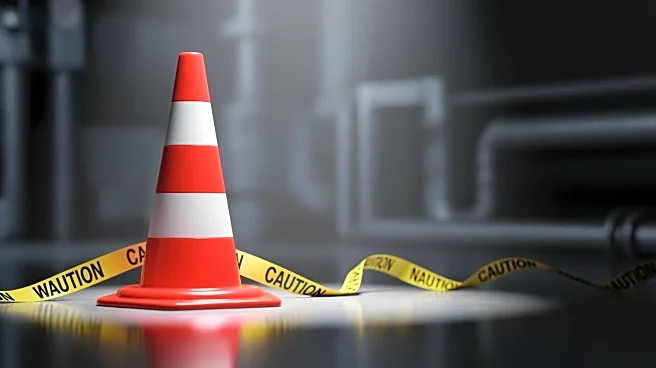What's Happening?
Shell, a major player in the global energy sector, is facing scrutiny over its safety practices and historical incidents. Despite its reputation for industrial prowess and transition ambitions, Shell has
been criticized for its safety record, particularly in offshore operations. Historical issues include chemical risks from its past involvement in pesticides and herbicides, and more recent concerns about safety underperformance in the North Sea. The company has admitted to having a second-rate safety record in the North Sea, with incidents like the Brent Bravo Platform highlighting ongoing challenges. Shell's 'Goal Zero' safety ambition, which aims for no harm to people and no leaks, has been questioned due to technical integrity issues and contractor oversight challenges. In Nigeria, Shell's operations have been linked to human rights abuses and environmental damage, further complicating its safety narrative.
Why It's Important?
The scrutiny of Shell's safety practices is significant for several reasons. For workers and contractors, the company's safety record raises concerns about exposure to risks in high-hazard environments. Communities near Shell's operations, particularly in Nigeria, face environmental and health risks due to leaks and pollution. Investors are also affected, as Shell's safety issues could lead to financial liabilities and impact shareholder value. The involvement of major institutional investors like BlackRock and The Vanguard Group suggests that the financial risk is socialized, potentially weakening the push for safety reforms. The broader implications include the need for stronger accountability mechanisms and the potential for legal and regulatory challenges that could affect Shell's operations and reputation.
What's Next?
Shell may face increased pressure from stakeholders to improve its safety practices and address historical issues. Legal actions, particularly in Nigeria, could continue to pose challenges for the company. Institutional investors might demand more transparency and accountability, potentially influencing Shell's governance and safety strategies. The company may need to invest in stronger safety measures and contractor oversight to mitigate risks and align with its 'Goal Zero' ambition. Public and regulatory scrutiny could lead to reforms in industry safety standards, impacting Shell and other major operators in the energy sector.
Beyond the Headlines
The ongoing criticism of Shell's safety record highlights ethical and cultural dimensions within the energy industry. The gap between Shell's safety ambitions and actual performance raises questions about corporate responsibility and the influence of shareholder structures on safety culture. The historical and ongoing issues in Nigeria underscore the complex interplay between corporate operations, human rights, and environmental stewardship. As Shell navigates these challenges, the broader industry may need to reassess its approach to safety, accountability, and sustainable practices.









